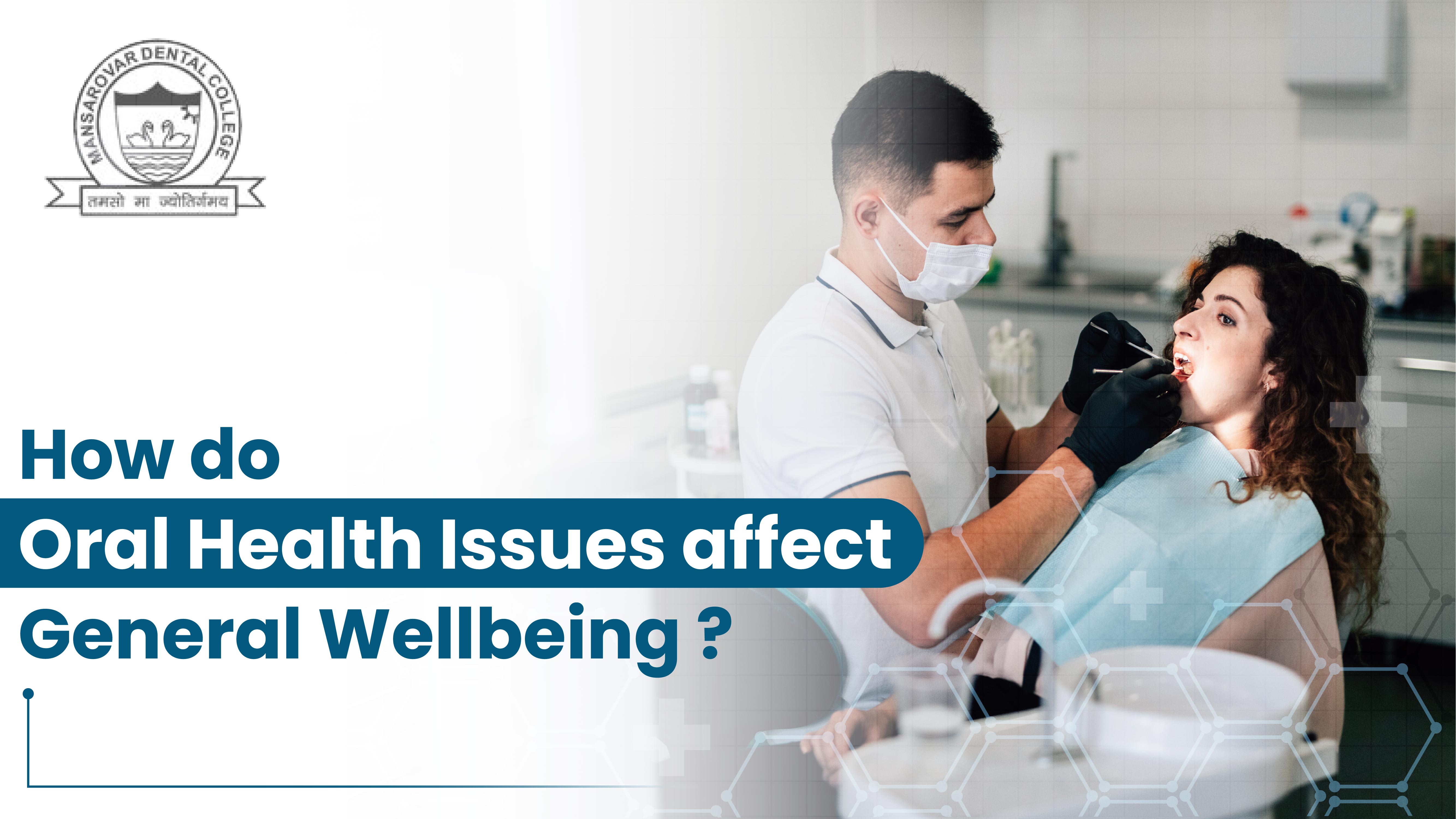
According to a Global oral health status report, conducted by WHO in the year 2022, the current state of oral health worldwide is frightening and calls for immediate action. As oral health can impact the overall health of a person. If you are not aware of how oral health can impact your general well-being then read this blog in detail.
The condition of the mouth, teeth, and orofacial structures, which allow people to execute basic functions like eating, breathing, and speaking, is known as oral health. This is essential to general health as oral health issues such as gum disease can be an indicator of other health problems.
Oral hygiene is the practice to maintain a disease-free and healthy mouth. Prevention is the goal of oral hygiene. This implies that by practising good dental hygiene, you can prevent oral health problems like cavities, gum disease, tooth loss, bad breath (halitosis), and other problems before they begin.
We use our mouths to eat, speak, smile, etc. and there are certain bacteria present in our mouths that are harmless. And as the mouth is the entry point of food, we intake which reaches the digestive tract and reaches the respiratory tract through breathing. And certain bacteria can cause diseases. That is why it is important to take care of oral hygiene just as the other body parts.
For example-If you have an infection in your mouth, the bacteria could travel to other parts of your body and cause problems such as stroke and heart disease.
Also Read: The Connection Between Your Health And Overall Health
Your oral health can cause you certain illnesses and ailments, such as:
When bacteria or other germs from your mouth migrate through your bloodstream and adhere to specific locations in your heart, it often results in infection of your heart valves or chambers.
Certain bacteria in your mouth can be drawn into the lungs and can cause pneumonia and other respiratory diseases.
According to certain studies, blocked arteries and stroke may be connected to infection and inflammation caused by oral bacteria.
Certain diseases that affect oral health-
For Persons who suffer from HIV/AIDS, oral issues such as uncomfortable mucosal sores are frequent.
Diabetic patients increase the risk of gum disease by lowering the body's ability to fight off infection. Those with diabetes seem to experience gum disease more frequently and severely.
According to a recent study performed by NIA researchers, the same bacteria that produce gum disease may also lead to the development of Alzheimer's disease and other dementias, including vascular dementia.
Rheumatoid arthritis, eating disorders, and an immune system issue that produces a dry mouth are additional conditions that may be connected to oral health.
To maintain your oral health, you need to practice certain hygiene tips on a regular basis-
If you aspire to become a dental surgeon and want to help people in resolving these dental issues, you can check out one of the best dental colleges in India- Mansarovar Dental college.
Also Read: Why Conservative Dentistry Is Important For Overall Oral Health?
According to estimates from the Ministry of Health and Family Welfare, dental cavities presently affect 70% of school-aged children and nearly 60% of adults in India. And India has the highest number of oral cancer patients in the world.
And to solve these major dental issues, India requires qualified dentists/dental surgeons who can create awareness regarding oral hygiene and treat patients with dental problems. If you want to join this profession, register yourself in a prominent dental college.
The advantages of maintaining oral hygiene are as follows-
Yes, bad teeth affect the kidneys. Bad dental health leads to tooth decay and gum disease. And both these dental diseases lead to infections that can create a problem for people suffering from kidney-related diseases.
The eligibility criteria for this 4+1-year BDS course are as follows-
The specializations available for the Master of Dental surgery course are-
© 2017 Mansarovar Dental College Powered by SynQues